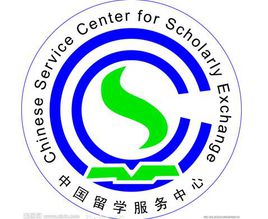


China’s Ministry of Education issues a new Overseas Degree Authentication Policy
According to the Chinese Service Center for Scholarly Exchange (“CSCSE”), overseas degree certification authentication is not mandatory, however, more and more local employers are starting to require it as they deal with the ever increasing number of international students returning to China for employment. Due to this development, China’s Ministry of Education has made a number of changes to the overseas degree authentication policy process.
The previous overseas degree authentication process was a lengthy procedure which took quite a bit of time to conclude. This lead to delay relating to commencement of the overseas students’ employment, so the CSCSE decided to simplify the process regarding the amount of material required from students, with a view of speeding up the certification authentication procedure.
The new overseas degree authentication policy is as follows:
-International students don’t need to supply documents to prove their identity
-Degree documents from previous Chinese educational institutions won’t be needed
-Overseas degree authentication will be sent directly to students

Previous Degree certificates from domestic institutions
Many Chinese students who have already studied overseas may feel confused with this new policy. Because, now the Ministry of Education doesn’t actually require students to provide paper degree certificates, but that doesn’t mean that the CSCSE won’t review them from the websites of local Chinese educational institutions. If the CSCE finds any discrepancies with the degree certificates issued through a domestic educational institute, they won’t issue the international student with an overseas degree certificate.
For example: Previously, if a Chinese student who has studied overseas wanted to get their overseas master degree authenticated, they needed to provide their local undergraduate degree certificate at the same time. Or, if they got their Bachelor degree abroad, they also needed to provide their domestic high school diploma.
The new rules have simplified this process as less support materials are now required, however, the CSCE has become stricter about reviewing the qualifications of students. International students shouldn’t rush to authenticate their application, because if it fails to meet the high standards required the student will be black listed. The applicants negative information will be kept inside the CSCE system and this will adversely affect any future authentication applications.
For more information about the recent changes to the Overseas Degree Authentication Policy, international students should visit the official websites of overseas embassies and consulates belonging to the People’s Republic of China. Chinese international students are encouraged to login to these websites which will feature up-to date information from China’s Ministry of Education.
The Chinese embassy in Canberra, Australia
http://au.china-embassy.org
The Chinese consulate general in Melbourne, Australia
http://melbourne.china-consulate.org
The Chinese ambassador to the consulate general in Sydney, Australia
http://sydney.china-consulate.org
The Chinese embassy in Washington, USA
http://www.china-embassy.org
The Chinese consulate general in New York, USA
http://newyork.chineseconsulate.org
The Chinese consulate general in Los Angeles, USA
http://losangeles.china-consulate.org
The Chinese consulate general in San Francisco, USA
http://www.chinaconsulatesf.org
The Chinese ambassador to the Chicago Chinese Consulate, USA
http://www.chinaconsulatechicago.org
The Chinese consulate general in Houston, USA
http://houston.china-consulate.org
The Chinese embassy in the UK
http://china-embassy.org.uk
The Chinese embassy in Canada
http://ca.china-embassy.org
The Chinese embassy in New Zealand
http://nz.china-embassy.org